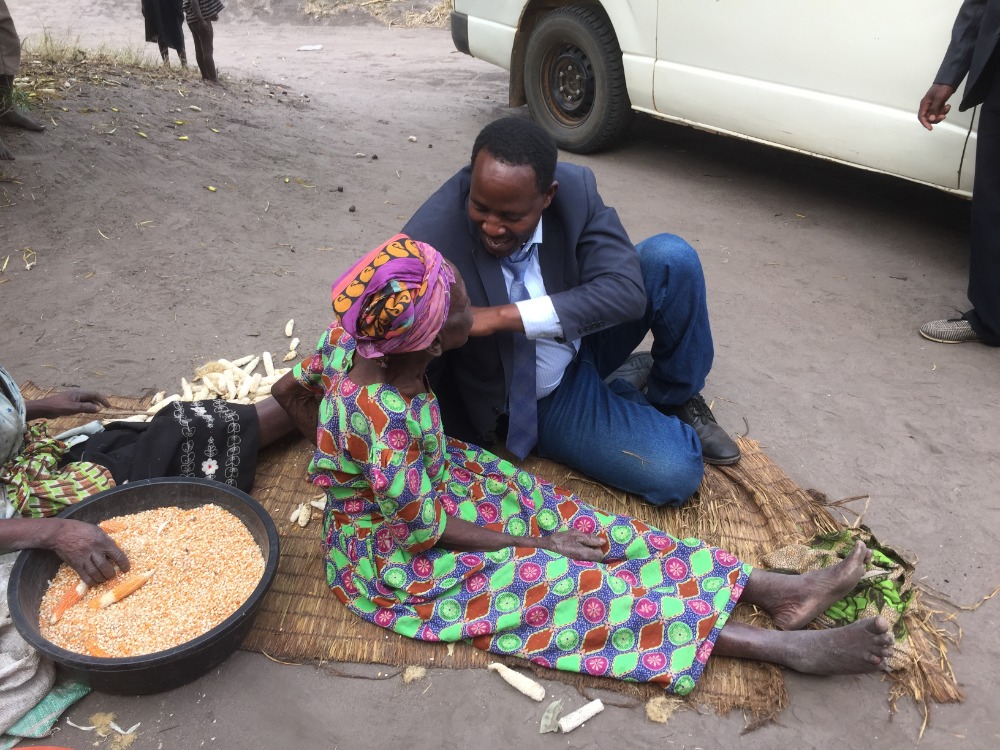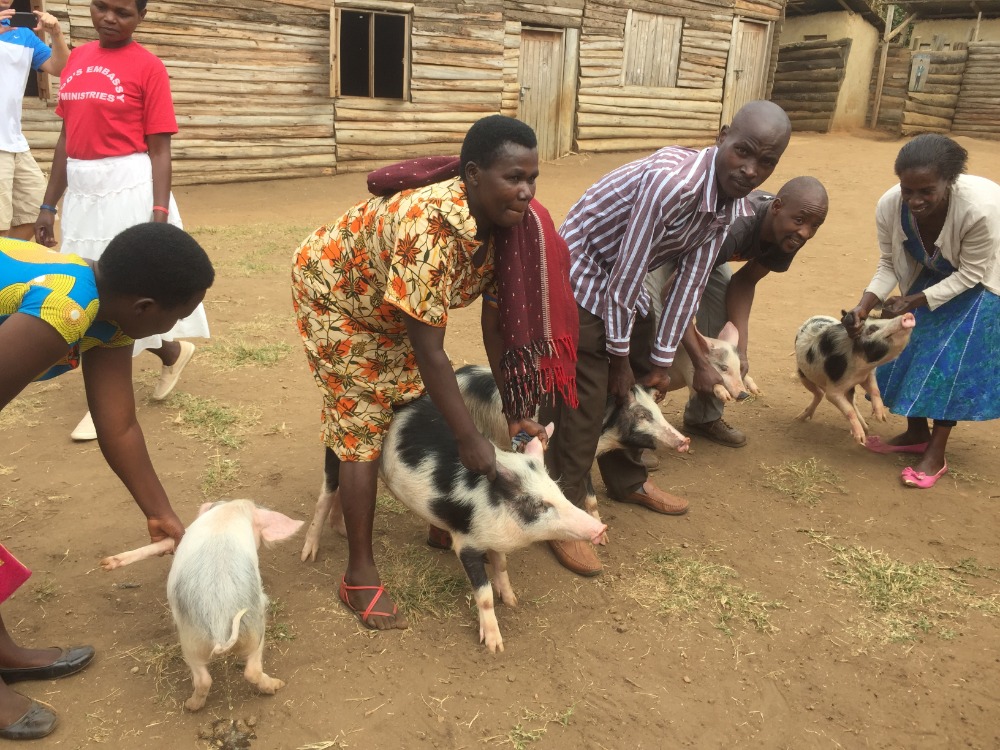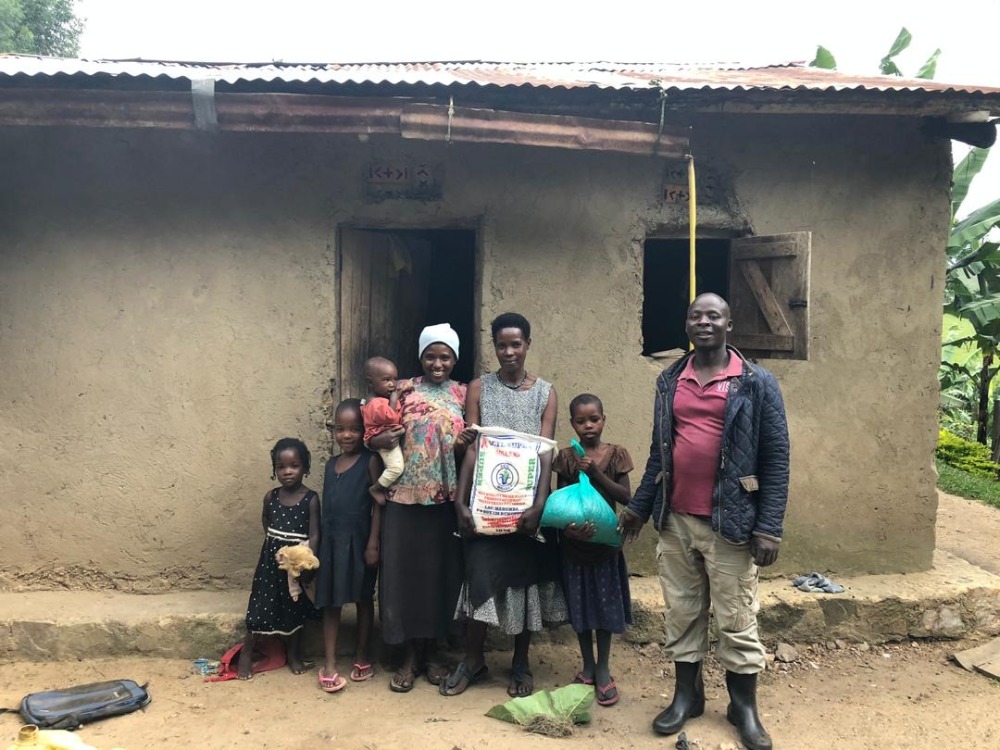Each person has a unique ability to observe the same scene and see different things. The question comes for those who know Jesus Christ, do you know what God wants you to see? We might also ask this question, when we see something, do we see the opportunity or just the problem?

Podcast: Play in new window | Download (26.3MB)
Subscribe: Apple Podcasts | Spotify | iHeartRadio | More
I showed this photo of an impoverished family to several church congregations that partner with White Fields. When I showed them the picture, I asked them what did they see? I had many people that responded to me after my message to share what they first saw, what their first response was to the photo.
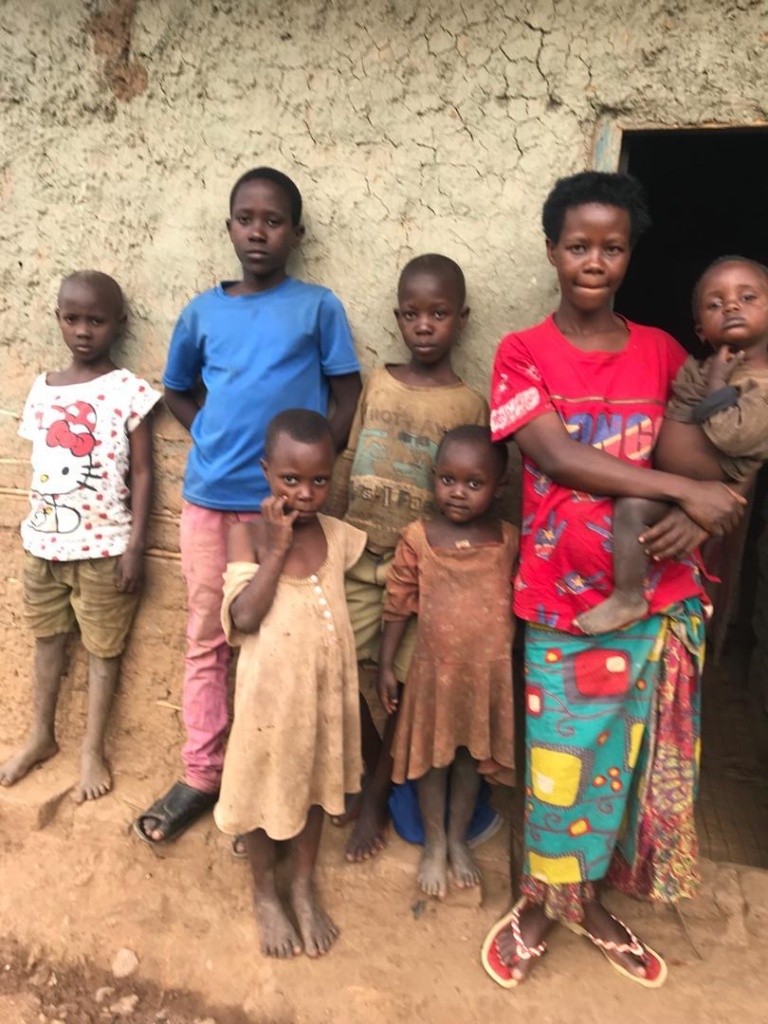
- Some saw poverty!
- Some saw poor children with dirty clothes.
- Some were concerned by what they did not see, a father.
- Some saw a hungry family.
- Some saw a mud house eroding away.
After we had viewed the photo, I shared these verses: Galatians 6:9–10
And let us not grow weary of doing good, for in due season we will reap, if we do not give up. So then, as we have opportunity, let us do good to everyone, and especially to those who are of the household of faith. (ESV)
Let us do good to everyone, and especially to those who are of the household of faith.
When we look at the hungry starving masses, do we see the opportunity to serve the impoverished church of Jesus? God does not provide everyone with wealth and plenty of food—so that we have the chance to show our love for our Lord by serving his people.
Eyes that look are common; eyes that see are rare. The Pharisees looked at Peter and saw only an unschooled fisherman—not worth a second look. Jesus saw in Peter a prophet and preacher, saint, and leader who would help turn the world upside down.
J. Oswald Chambers
Listen to The Whole Story about this family here.
We saw this family as children of the Lord. Upon a recent visit to our ministry in Uganda, I was able to minister to this family alongside our local pastoral team. I was joyful in the transformation, not only on the outward but in their hearts. After long seeking for a church that would teach them the Bible and explain how they could go to heaven, they had received the truth and came to faith in the death and resurrection of Jesus to pay for their sin. Now they want to commit fully to learn the Bible and be wholly involved in church.
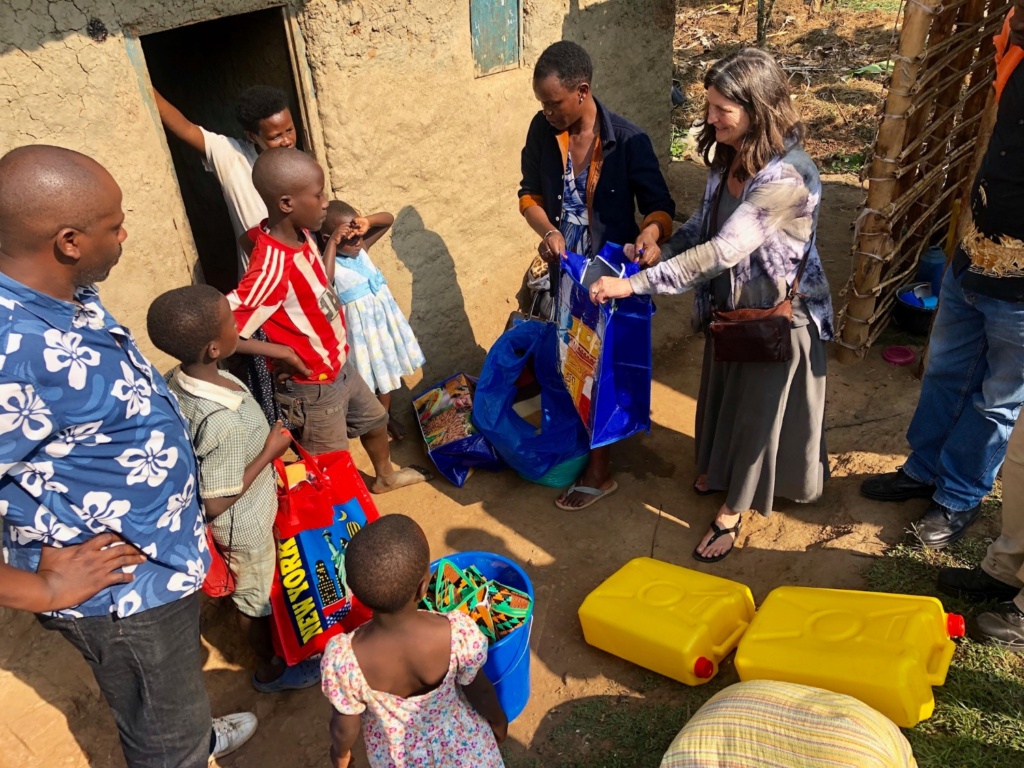
Bringing some gifts to the family. 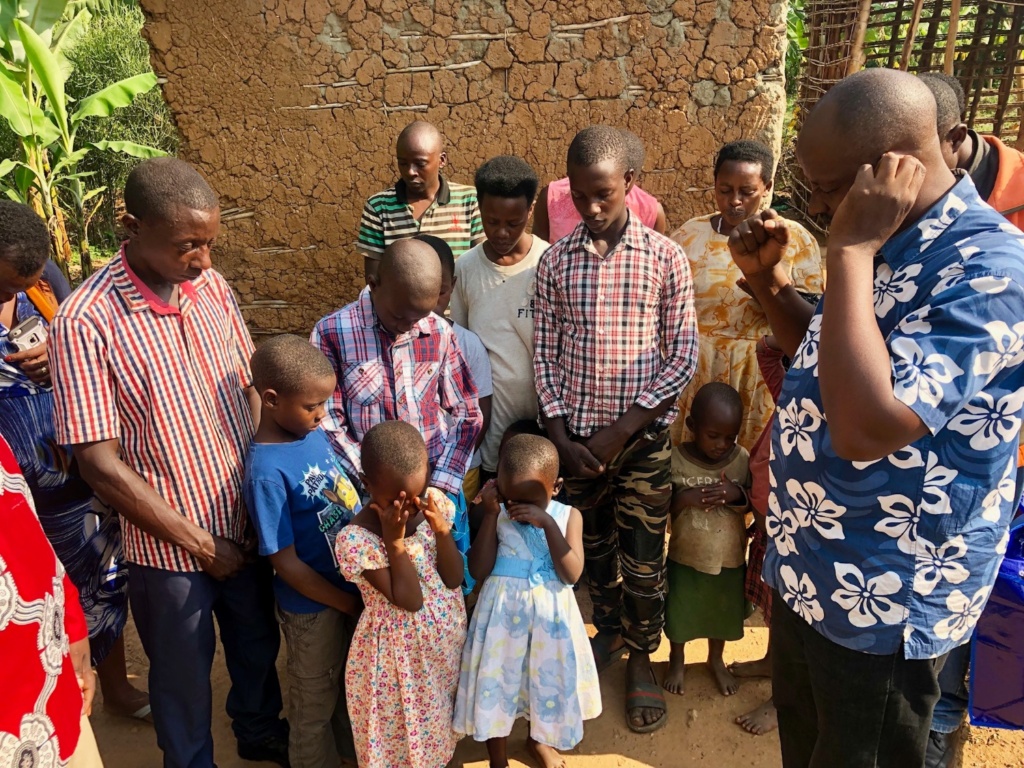
Pastor Robinson Prays

In Matthew 25, Jesus tells us about an event that will take place in the future. Following right on the heels of several parables, some might mistake this for a symbolic parable. Still, the language clearly illustrates that this is a glorious event at the end of time. Jesus will come in all his glory, and there will be a judgment.
There will be two groups of people, the saved and the unsaved. Everybody from the entire human race will be here; God does not exclude anyone; all the wicked and the righteous will be present. The judge separates the group like a shepherd, the sheep on one side, the goats on the other. The symbolism may demonstrate that the sheep respond to the shepherd’s call, and they follow, whereas goats do not listen and would not follow.
There is a Judgement Coming
There are many reasons why the final judgment is indeed necessary. One is that the righteousness of Jesus Christ and the glory he deserves will be on full display. His last appearance on earth was hanging on a cross. Now he sits upon a glorious throne and has all the redeemed gathered at his side.
He then expresses to his sheep, the ones who heard his voice and followed, “Come, you who are blessed by my Father, inherit the kingdom prepared for you from the foundation of the world.” Those are beautiful words, and they are the words I want to hear (and I’m sure you want to hear too) from our Lord when we stand at that judgment. It is important to note that we are not sheep because we did good things. The judge has not mentioned those deeds yet. This event is all about bringing glory to Jesus. We are standing on the right because the Father blessed us. He prepared this privilege for us since the foundation of the world.
Jesus explains that sheep and goats saw things differently. The sheep saw their needy and impoverished brothers and sisters as representative of Jesus. Jesus says:
- I was hungry and you gave me food
- I was thirsty and you gave me drink
- I was a stranger and you welcomed me
- I was naked and you clothed me
- I was sick and you visited me
- I was in prison and you came to me.
Why did the righteous people feed him, and give him a drink? Why did they welcome him as a stranger and clothe him? Why did they visit him when he was sick or when he was in prison? They are asking: When did we see you hungry? When did we see you a stranger? When did we see you sick? They are asking, when, did we see YOU? The answer is that they saw Jesus in the faces of the least of these people. When we see the weakest, sickest, and most destitute people that have believed in Jesus—we see Jesus.
Truly, I say to you, as you did it to one of the least of these my brother, you did it to me.
Performing good deeds will not save us. The reason this judgment is such a glorious occasion is that Jesus and His Father are receiving glory for our fulfillment of the righteous and good deeds they had prepared for us to accomplish.
For we are his workmanship, created in Christ Jesus for good works, which God prepared beforehand, that we should walk in them. Ephesians 2:10 (ESV)
He prepared us to SEE the poor and the hungry. When we see them and serve them, we are fulfilling the good works that God prepared us to do as true believers in his son Jesus. We are moving out as the hands and feet of our precious Savior and Lord, who demonstrated his love toward us. Additionally, we will be standing in that judgment with the very people we served. They have been giving glory to God ever since we came and cared for them, and by that, he is praised and receives glory even now.
God gave his supply to us. God receives thanksgiving and glory when we share what we have with our brothers and sisters who don’t have enough. Those people know we are fulfilling the confession we have through the gifts of generosity. There is no other reason why people so far away and with no chance to be paid back would give them relief. So, they praise God that we are acting in the same way Jesus did when he sacrificially laid down his life for our atonement.
Consider the Real Poor
Some of my American friends might have become jaded by the whole issue of poverty and how to give or serve the poor. In my neighborhood, I see professional beggars who dress up and stand on the same corner day after day, collecting money from sympathetic passersby. Others recognize that drunkards and immoral people receive large sums of money from the government that has been taxed from the working class. The government is enabling this bad behavior.
That is where our eyes have to see the right way to be generous. God never encourages us to be bad stewards of our finances. We can be generous and be good stewards too. In this passage, we have been exploring; Jesus refers to the people who received the generosity as “my brothers.” Galatians, chapter six declares too that we are to be generous to all people, but notice, “especially to the household of faith.” We should see the poor and impoverished people that are members of the local church. We should pay closer attention to those living in extreme poverty conditions around the world. We will not be excused at the judgment if we refuse any generosity just because some abuse the system. That is why White Fields has adopted our particular approach to solving poverty.
Our Poverty Solutions see the opportunity to solve the impoverished community’s hunger by enabling them to work and learn how to produce their income. They become workers and producers. We teach them how to add value to the crops they grow so other people in their community who have jobs but lack the time or skill can pay for our church members’ product. We have trained welders and brick makers. Even widows can manage to raise a goat or a pig and sell the offspring. The church leaders look after the people, so the donations made by you to these ministries are efficient and bring about positive results.
Let us not lose heart in doing good, for in due time we will reap if we do not grow weary. So then, while we have opportunity, let us do good to all people, and especially to those who are of the household of the faith. (Galatians 6:9, NASB)
We deliver your donation to the most impoverished families in the church. Neighbors begin to wonder, “Why does their church love them?” Those neighbors become extremely curious when the poor widow, who now has just a little more than she needs, gives something to her neighbor who is more unfortunate than she. God blesses the poor widow because she was generous to her poorer neighbor. We hear many testimonies of people coming to faith because they see the living out of the love of Jesus by the church in their community. Your gift makes you a partner in all that generosity and proclamation of the gospel.
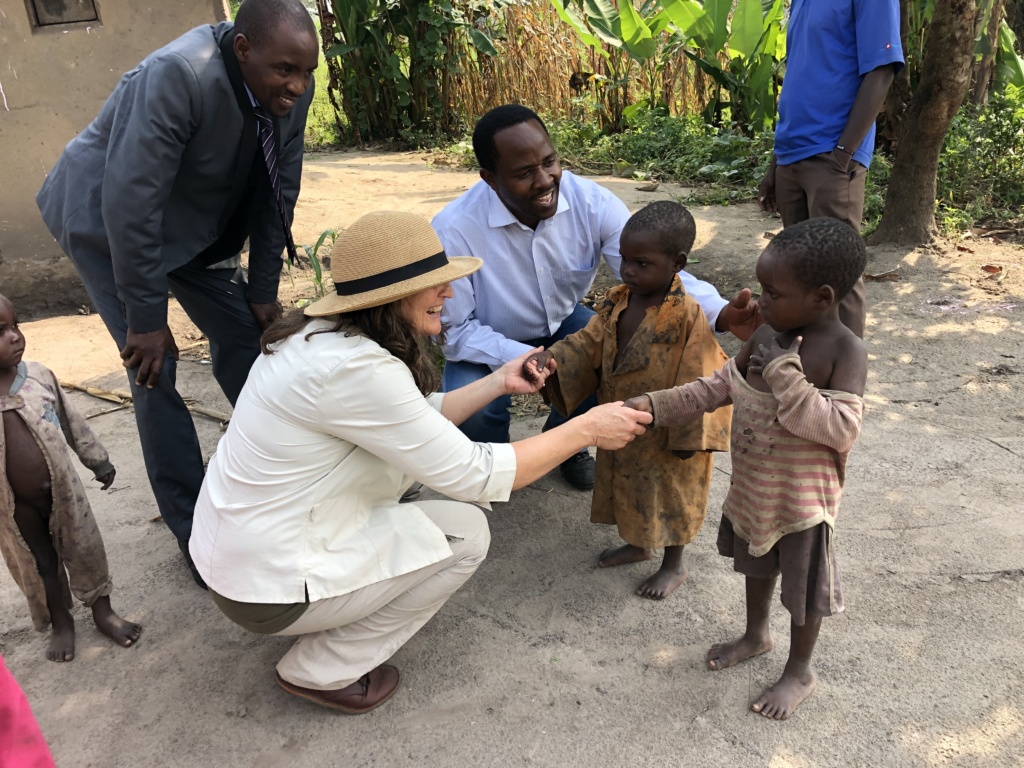
You may not have the ability to travel and hold their hand. I assure you that we will deliver your gifts of love to true believers and that they will be put to proper use to bring people out of the bondage to poverty.
How is your vision? Do you see the opportunity to demonstrate the love of Jesus Christ?
Vision involves optimism and hope. The pessimist sees difficulty in every opportunity. The optimist sees opportunity in every difficulty.
J. Oswald Chambers
